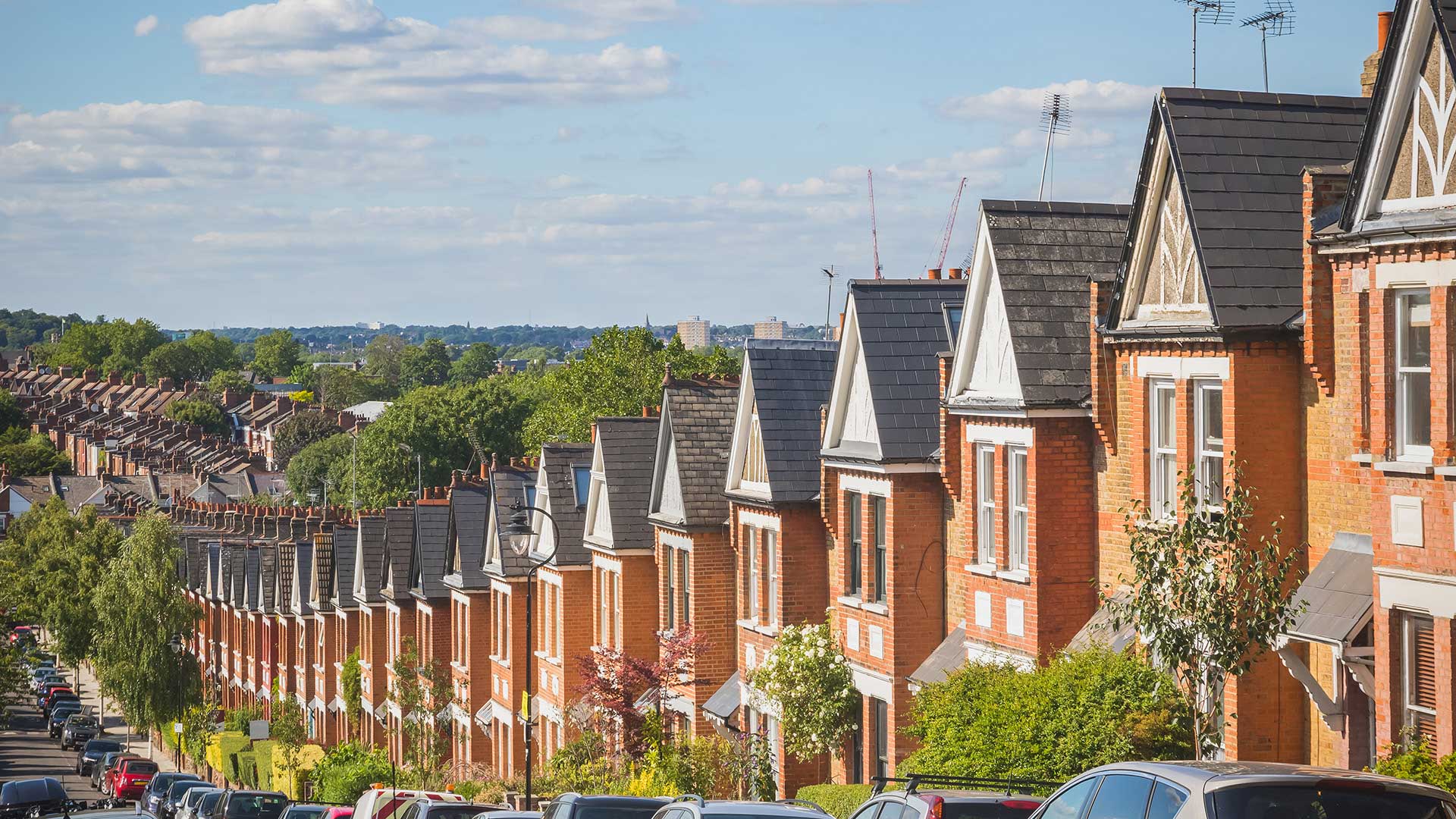On the sixth anniversary of the EU referendum Britons remain deeply divided over Brexit.
Our latest barometer reveals that Britain is divided over a number of issues, including what the UK’s future relationship with the EU should be, how well the government has handled Brexit, and what the government should do about the Northern Ireland protocol.
Key findings from our research, which took place between 16 and 20 June 2022, include:
- If a new referendum on EU membership was held, 35% would vote to apply to join the EU (-1 Vs December 2021[1]), 34% would vote to stay out (+1). 18% would not vote (-1) and 12% do not know how they would vote (+1).
- More than half of Britons (54%) think the government is handling Brexit very/fairly poorly. While 30% think the government is handling Brexit Very/fairly well.
- On the Northern Ireland protocol:
- 28% think the government should change the arrangement to make the rules exactly the same for Northern Ireland and the rest of the UK, even if this may mean the return of a hard border with Ireland (-4 Vs May 2022[1])
- 34% think the government should stick with the current arrangement and keep in place the trade agreement already negotiated with the EU (+4)
- 38% don’t know what the government should do (nc)
- One third of Britons (35%) think neither Boris Johnson nor Keir Starmer is best placed to manage Brexit (-1 Vs May). 27% think Boris Johnson would be better placed than Keir Starmer at managing Brexit (+1). While 19% think Keir Starmer would be better placed than Boris Johnson (-2).
- Britons think the government should take the following actions to help deal with increases to the cost of living:
- 60% think the government should remove VAT from energy bills (+6 Vs May 2022)
- 47% think the government should introduce a windfall tax on oil and gas companies’ profits to fund support for household energy bills (+3)
- 51% think fuel duty should be cut (+10%)
- One in five Britons (21%) are behind with some or all of their bills (-3 Vs May 2022) while 73% are up to date with all of their bills (+4).
More detailed analysis on themes
1. Household-level economic situation
- Britons continue to be pessimistic about the economy and their household finances compared to the start of the year.
- Two in three Britons (65%) think the British economy is doing worse than it was a year ago (-3 Vs May 2022). This remains far higher than in January 2022[1] when only 39% thought the economy was doing worse than a year ago. One in four (27%) think it is doing much the same (+4) but only 8% think it is doing better (-1).
- 47% think that the British economy will be doing worse than it is now in a years’ time (-4 Vs May 2022), 14% think it will be doing better (+1) while 39% think it will be doing much the same as it is now (+4).
- More than half (57%) are finding it harder to meet their monthly household budget than a year ago (-7 Vs May 2022). This is the first time this figure has fallen since July 2021. Nonetheless, this figure is still much higher than in January 2022 when it was 44%.
- To help deal with increases to the cost of living, Britons think the government should reduce VAT on energy bills, reduce income tax and introduce a windfall tax on oil and gas companies.
- 60% think the government should remove VAT from energy bills (+6 Vs May 2022)
- 47% think the government should introduce a windfall tax on oil and gas companies’ profits to fund support for household energy bills (+3)
- 51% think fuel duty should be cut (+10%)
- 35% think the government should reduce income tax (nc)
- Only 2% of Britons think the government should take no action to deal with the cost of living (+1)
- One in five Britons (21%) are behind with some or all of their bills (-3 Vs May 2022) while 73% are up to date with all of their bills (+4).
- Around one in five (21%) of those in work believe their job is less secure than it was a year ago (+-3 Vs May 2022). Only 18% believe their job is more secure than it was a year ago (+2), although 50% believe their job security is much the same as before (-2).
- 75% (-7) think the government has handled the cost-of-living crisis fairly or very poorly.
2. Brexit
- If a new referendum on EU membership was held, 35% would vote to apply to join the EU (-1 Vs December 2021), 34% would vote to stay out (+1). 18% would not vote (-1) and 12% do not know how they would vote (+1).
- More than half of Britons (54%) think the government is handling Brexit very/fairly poorly. 30% think the government is handling Brexit Very/fairly well.
When asked about the Northern Ireland protocol:
- 38% of Britons do not know what the government should do about the Northern Ireland protocol (nc Vs May).
- 28% of Britons think the government should change the customs arrangements to make the rules exactly the same for Northern Ireland and the rest of the UK, even if this may mean the return of a hard border with Ireland (-4).
- 34% of Britons think the government should stick with the current arrangement and keep in place the trade agreement already negotiated with the EU (+4).
When asked about relaxing immigration rules to allow more workers from other countries to come and pick crops in UK farms on a temporary basis:
- 44% of Britons think immigration rules should be relaxed
- 35% thought immigration rules should not be relaxed
- 21% did not know
3. Policy Priorities
When asked about the three most important priorities for the UK government if it is to improve public life in the UK, Britons cite the following:
- Reducing the cost of living (52%, -2 Vs May 2022).
- Investing more in NHS capacity (35%, nc).
- Growing the UK’s economy (28%, +4).
- Stricter border controls to reduce immigration (22%, +7).
4. Party Leaders Rating
- When it comes to party leaders, a plurality believes neither Boris Johnson nor Keir Starmer is best placed to tackle the UK’s biggest policy challenges. A large proportion simply do not know who would be better.
- Britons tend to think Keir Starmer would do a better job than Boris Johnson at: reducing the cost of living, improving the economy, reducing serious crime, managing the NHS, tackling climate change, telling the truth, and making decisions in the best interest of the general public.
- Whereas Britons are of the view that Boris Johnson would be better placed to deal with: managing the COVID-19 pandemic, managing Brexit, leading Britain if military action were needed, and standing up to Russia.
- Women were more likely to answer ‘Don’t know’ at almost every question, and consequently less likely to select Boris Johnson or Keir Starmer.
- However, the difference between the two is mostly in single figures.
5. Attitudes Towards COVID-19
Britons are split on the government’s handling of the pandemic:
- Half of Britons (47%, -2 from May 2022) think the government has handled the COVID-19 pandemic very/fairly well.
- 43% (-2) think the government has handled the pandemic very/fairly poorly.
- One in ten (11%) are not sure (+4).
6. Voting Intentions
- Lab 36% (-2 Vs May 2022)
- Con 34% (+2)
- Lib Dem 13% (nc)
- Green 5% (-3)
- SNP 4% (+1)
- Reform UK 4% (+1)
- UKIP 2% (+1)
- Plaid Cymru 1% (+1)
- Other 1% (nc)
Women are less likely than men to say they would vote Conservative (32% of women vs 37% of men), and more likely to say they would vote Labour (39% of women vs 34% of men).
Methodological information
A total of 1,141 interviews were conducted online among adults living in Great Britain between the 16th and 20th June 2022. All interviews were conducted online using the Kantar Research Express. The Kantar online access panel was the main sample source.
The data was weighted to match population totals for age, gender, 2019 General Election voting patterns, 2016 EU referendum voting patterns, education, region, and likelihood to vote in the next General Election. Any use of this research must cite Kantar Public as the source.
This content was issued under our former global brand name, Kantar Public.
Our latest thinking
Subscribe to receive regular updates on our latest thinking and research across the public policy agenda
Our latest thinking
Subscribe to receive regular updates on our latest thinking and research from across the public policy agenda









